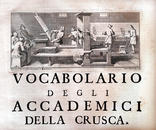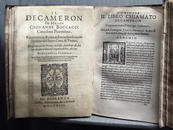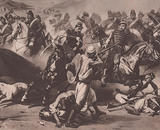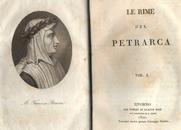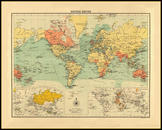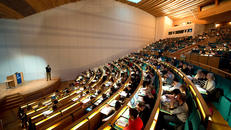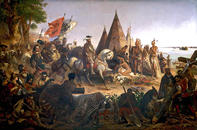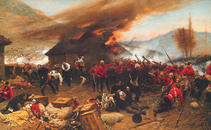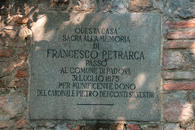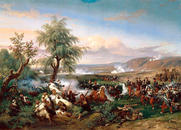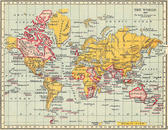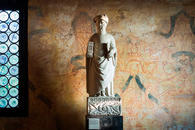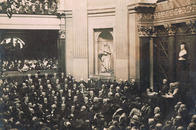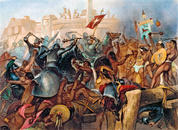In recent months, we have been busy with the reorganization of two important brands of the Zecchetto Group (Cipollini and DMT,) redefining the conceptual cornerstones and studying the new global advertising campaigns (Cipollini Monocoque, Cipollini Custom Made, DMT Freedom For Your Cycling). We also have enjoyed developing the image and catalog for an exhibit of works by the great American photographer Ron Galella and his obsession with Jackie Kennedy Onassis.
Italian is marvelous
It doesn’t happen often to come across a book that you wish you had written yourself. Recently, I read “L’italiano è meraviglioso” (Italian is marvelous), written by Claudio Marazzini, president of the Accademia della Crusca, and I felt exactly that way. Apart from the cover (ugly, therefore off topic) and the conclusions (beautiful, but too optimistic), I felt that the book was mine. The book was able to address, organize and clarify a series of topics that have been floating around in my mind for some time. I found the book to be so relevant that I decided to share it by summarizing or paraphrasing Marazzini’s words and adding my personal considerations here and there.
The history of the Italian language is singular, very different from other languages of culture. First of all, Italian was established long before the country of Italy. Thanks to culture and literature, Italians first developed an idea of nation, because without one or the other nobody would have thought of unifying a territory so different in its various parts. This sequence of events is unique, at least among the main languages of culture. Normally, the history of a language is the result of conquests and territorial expansion on the basis of a certain political power, imposing itself according to arms and armies. This is what happened with Latin, the mother of all Romance languages at the time of the Roman Empire. This is also what happened with colonial languages, with English, French, Portuguese and Spanish. Without colonialism, English would be an impractical, isolated language. Without the heinous conquistadores, only 40 million people would speak Spanish, and not 400 million. If we want to know who or what made English, French and Spanish great, we must refer to the history of the monarchies, military enterprises, wars, invasions, colonial enterprises, blood and fatalities. The success of these languages is violent, so, in comparison, the history of the Italian language is quite stunning. In the case of Italian, its international success (and it was widely studied and spoken in the past centuries), is due solely to a widespread interest in our culture - interest due to the cultural domination that came thanks, and through, our language. An interest in Italian dates back to the period of Humanism (which blossomed in Padua) and that finds its development in the sixteenth century, when Europe took the poetry of Petrarch as a paradigm of beauty and harmony; and assimilated the novelistic model of Boccaccio. “Il Canzoniere” and the “Decameron” were imitated by everyone (even more than Dante’s Divine Comedy, which was too original to be a replicable model for other works.) Petrarchism and novellistica in the manner of Boccaccio became a European, not just Italian phenomena.
Italian, unlike other languages, has an intrinsic force that is also a weakness: it’s a language of culture, of high culture, that has not laid its foundations, like all the others, in the spoken word and therefore is essentially the language of the business world, even if was literally extracted from great works of art. Perhaps for this reason it was it was standardized rather late, in the early sixteenth century, thanks to the style and skill of two writers of Venetian origin, Giovan Francesco Fortunio and Pietro Bembo, a Venetian nobleman from Padua. Before that time, every scholar that spoke or wrote in Italian tended to carve out his own norm, in the pure individualistic spirit that has always characterized Italians. Having read the works of great writers (Dante, Petrarch and Boccaccio) and admired the formal perfection and harmony, the two grammarians, a few years apart and somewhat autonomously, defined Italian grammar using those texts, not concerning themselves with the "disorder" that would result in the spoken language of the people. Bembo, whose version of Italian quickly became the norm, hated that it had become popular. He was worried that the purity of the language was at risk. This is also why Italian became established as a cultured, elite language. For centuries, this has been the inimitable strength of our language, admired all over the world for its refined literary character and its natural cantabile. (There is no need to mention that the art form par excellence is Opera, as it is able to communicate all human passion through music, singing, theater and stage design arts. And needless to say, Opera is fruit of the Italian language.) This literariness, its cultural importance was also its weakness, when it had to become the language of the people. Italian was born around the Middle Ages, in the disorder of immense territorial variety, moving away from it throughout the period of the regulatory stabilization of the sixteenth century and quickly finding its own dimension of the hegemonic language of world culture. Italian returned to be the language of the people at the time of the twentieth-century democratization. The language began to lose its allure, although it remained fairly intact until the end of the century.
Today the dominance of English puts all other languages at risk. Ours first and foremost, precisely because, despite the popular contamination, it remains a cultured and literary language, therefore it’s not frank and direct. The problem of globalization, which standardizes everything on the basis of a universalistic and utilitarian utopia incapable of giving the desired results. It’s not a question of opposing the inevitable (which globalization seems to do) rather than trying to exasperate its most negative consequences, or even better, trying to live with it without being crushed or annihilated. Maintaining an un-globalized part of our best traditions and habits should be our duty, a form of respect for ourselves and therefore a necessity. This is not impossible. Other nations with important cultural traditions have defended their language or have at least tried. We, on the other hand, do not miss an opportunity to insult the Italian language, at all levels. And if poorly-constructed insults don’t surprise anyone, a properly-constructed and executed insult can’t be silenced.
In France, protection of the national language is still at the center of the political debate, so much so that one of the most serious accusations that Marie Le Pen made to Macron in the last election campaign was aimed precisely at his (presumed) lack of interest in protecting the French language. The accusation was firmly rejected by the voters who underlined their love for "notre langue qui m'a fait" ("the language that made me," an expression that emphasizes the formative function of a language that is respected and that you love). Have you ever heard Italian politicians say something similar at the decisive moment of an electoral battle? Italian politicians are those who attend international forums and speak in English only, when the German representative intervenes in German, the French representative in French, the Spanish representative in Spanish (I would say: obviously). The useless display of their knowledge of English by Italian politician goes well beyond provincialism and only cements their servile position. But something worse still hangs over our beloved language. Even though we have ceased to count in politics for a long time, the world is still corrupt and superficial.
In wise nations, foreign students are required to attend language courses in the host country. This also seems obvious, right? Here in Italy, on the other hand, internationalization is intended only to attract students to live in an artificially and superficially English environment. The aim is not to bring them closer to our culture or share experiences and knowledge, but they are considered a quota. The paradox is that Italian students have to sit through courses taught in mediocre English. And it is precisely the world of academia, which should defend and propagate our culture, that you find the most hostile positions taken against the Italian language. In fact, the topic of language ended up in the courts with a judge called to stop the abolition of Italian from university teaching (the infamous case of the Milan Polytechnic). Fortunately, the sentence stressed that universities can maintain courses in English that they consider necessary, but there needs to be a balance, commensurate with the primacy of the Italian language (a simple and elementary concept, which respects Article 9 of the Italian Constitution.) And it is not even worth dwelling how the courses taught in English are often organized, with a superficial use of the globalized English, which is totally unsuitable for the science and advanced learning. Otherwise the classes are taught in dumbed-down English in order to communicated with an audience consisting largely of Italians. The judicial sentence, which defends the right of choice necessary for educational freedom against those who wanted to impose an act of linguistic authoritarianism, means that the Politecnico is trying to eradicate the Italian language. Little do they realize that they will automatically eliminate themselves as global players by doing so. The road is marked, and it is only a matter of time.
The supporters of the Politecnico di Milano make the comparison with nations like Finland and the Netherlands, countries where English is commonly spoken. The 60 million people that speak Italian, hold the same weight as the 16 million people who speak Dutch and the 5 million that speak Finnish. (There are 10 million Italian speakers in Lombardy alone.) But not only. Here we are discussing something else: Italian is one of the four great languages of Western culture. It’s an official language in Switzerland (which in respect to Italy has a more flourishing economy) and is the fourth most studied language in the world according to official data with over two million people studying abroad in Italy. Therefore, if we were to look at a model, we would have to go back to France where, in the face of a strenuous defense of their language and with the active and pugnacious participation of their Académie, it is possible to implement a much more expansive and effective economic policy on the international scene. Appreciating one's native language with affection and trust does not mean you shouldn’t learn English. In fact, knowing one's mother tongue well is the only basis for learning other languages well. This is also why the French, on average, speak English much better than Italians. To misinterpret internationalization for the divestment of national identity, isn’t just idiotic, it’s criminal. And what’s most appalling is that idiots and criminals are teaming up with our universities.
But we are all guilty, more or less. How many English words that are used every day in standard conversion are really indispensable? That is to say, how many don’t correspond to an Italian word? CEO (which in Veneto dialect means a small, tiny child) is amministratore delegato. Auditing is a simple audizione. A cluster is un gruppo. Endorsement has many equivalents in Italian, from adesioneto sostegno(which both are easier to pronounce and sound better, I must say ...). Fake news is false notizieor, better yet, fandonie. And we could go on and on. All English words used when speaking Italian are perfectly useless and horrendous but colored by a superiority that exists only in the mind of those who use these terms to give themselves the air of technocrats.
Even if we ignore these ridiculous contaminations, how much does someone who speaks and writes in Italian really respect the language? There is no longer the sense of shame and inferiority if you get caught having made a mistake. There is no longer a need to correct one’s self. The neglect in communication is no longer a cause for concern. On the contrary, people bask in a poor and sloppy Italian, if not actual illiteracy. This is why too many people believe they can read and write without actually learned how to do so; therefore, they don’t actually understand what they believe they have read. Approximation in the use of language is paired with approximation in substance, which makes any learning impossible - let alone destroying the critical spirit. It’s no coincidence that the tests carried out on representative samples of population between 16 and 65 years old in 24 countries (22 members of the OECD), which detect for example the ability to understand written texts, places Italians at the bottom of the list. They have the worst language skills of countries in the survey.
And the Italians who can write, the “elites” who make a living by writing, how do they write? If we consider the young novelists of today, the situation is desperate. Many of them write in another language, more like the translation from a succinct English than in the language "equally perfect as immense" of which Leopardi spoke two centuries ago, language with which he expressed himself just as perfectly and immensely, while knowing other seven languages.
The history of Italian is coming to an end, a history made not of arms and blood, for once, but of pure beauty. Our noble language is dying. What is most distressing is not seeing the language die with honor, as languages usually die, murdered by a foreign hand. Italian is dying by a friendly hand. A suicide, actually. Stupid, unaware.
28/09/2018 Filippo Maglione



